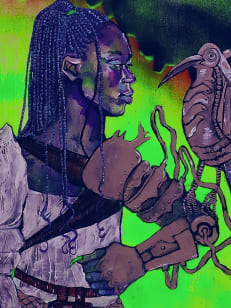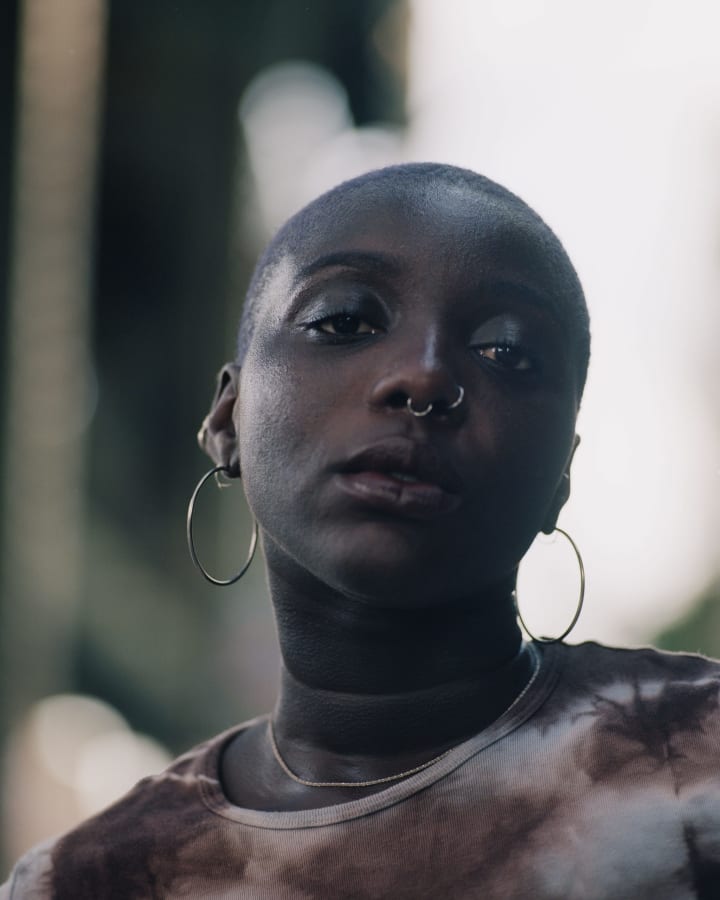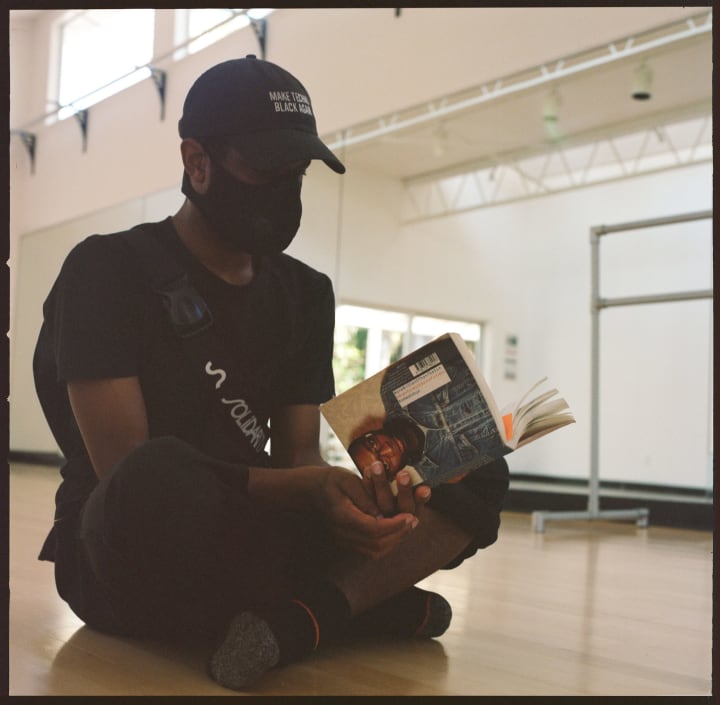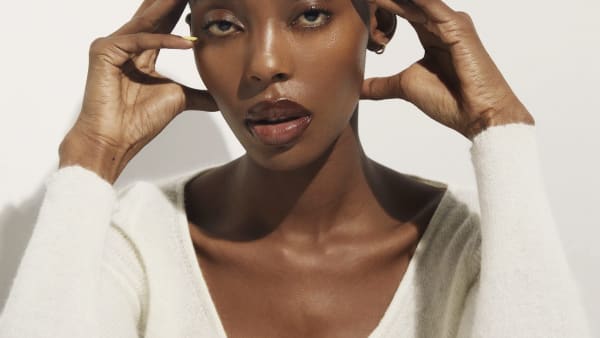

Akua’s New Acid-Tinged Techno Track “Find Another Connection” Breaks Free From Societal Expectations
The Discwoman affiliate channels her frustrations with racial inequality into a radical sonic statement.
In our newest content format, FWD Transmissions, we aim to support creatives in the aftermath of COVID-19 and to throw the spotlight on BIPOCs in the industry. Electronic Beats will commission a track from a producer and bespoke work from a visual artist, both to be debuted exclusively across our channels.
—
“Find Another Connection,” from New York DJ and producer Akua is a defiant and cathartic new production of acid-tinged techno challenging the many social limitations imposed on Black women in a post-colonial society. Affirming the conceptual possibilities of Detroit techno as a form of sonic fiction, Akua envisioned a track that could express the vulnerabilities of racial inequality while also communicating her intent to break free from the expectations of others. Much like her DJ sets, Akua’s productions are meticulously sculpted and rooted in a back to basics approach with hardware electronic production infused with suggestive messages that hope to communicate with the listener.
-
Akua — Find Another Connection

Akua started as a radio DJ while in college in Cleveland, Ohio where she began to cultivate her passion for the electronic soul and funk sounds coming from the American Midwest. Though footwork would frequently find its way into her sets, she would pivot into learning and developing a discipline in the Detroit techno sound shortly after arriving in New York in 2015. Akua’s flavor of techno has roots in the counterstrike force-themed Underground Resistance releases by Scan 7 or Robert Hood under his moniker The Vision. Initially starting her DJ practice on Denon S3500s, Akua developed a disciplined, research-oriented method for transferring emotions and imagined scenarios into electronic instruments, later joining Discwoman and touring her sound globally.

“Find Another Connection” is an example of Akua’s ability to craft a techno sound that stimulates both the mind and body with substantive content. Layered over pensive hit-hats and a steady blunt kick drum, treated vocals recite verses from “The Bridge Poem” written by author and feminist theorist Kate Rushin. The lyrics are confrontational but presented as matter-of-fact within a sense-altering mixture of electronic percussion and dubbed synth stabs. “I just really love how she eloquently puts into words this frustration with being a bridge and a connection that I’m sure a lot of Black women experience and are exhausted by. Within our families, social spaces, etc,” Akua samples Rushin’s words delicately, allowing the words to resonate almost subliminally in the midst of a world of digital audio. In her sonic statement, she decries the emotional burdens of Black women who are expected to mediate discussions between gender and racial groups.
This element will show content from various video platforms.
If you load this Content, you accept cookies from external Media.

In the tradition of illustrators like Alan Oldham and A. Qadim Haqq, who actively interpreted the sounds of the Detroit techno scene into a world of vivid characters and environments, as seen in The Book of Drexicya, Australian digital artist and painter Serwah Attafuah visualizes “Find Another Connection” as a prosaic scene of a woman portrayed in the expanse of a submerged technological wasteland. Attafuah’s artwork veers science fiction into the present with marginally dated home audio systems and televisions littered throughout a detailed waterscape. The image of a dystopia deferred pairs well with Akua’s evocative productions with each colorway detail made in conversation with the scope of the track. Serwah Attafuah observes that the scenario is of a young woman triumphing over a struggle and escaping an oppressive place, “I imagine her finally getting the courage to step away from something that’s been holding her back, not fearing it but accepting it,” she explains. Coming to terms with the disasters of the technological revolution and a “civilized” society derived from colonialism is a key feature of Attafuah’s work, “I also took visual inspiration from Agbogbloshie in Ghana which is the world’s largest e-waste dump site. Unfortunately it’s where the world’s e-waste goes to die.” The protagonist that Serwah Attafuah has created offers a face to the transmitted prose of Kate Rushin while also fulfilling an imagined discourse that surfaces in the track through varying natural builds and breakdowns under which Akua’s vocal muse utters, “I’m sick of mediating with your worst self/ On behalf of your better selves.”

Published November 06, 2020. Words by DeForrest Brown.








